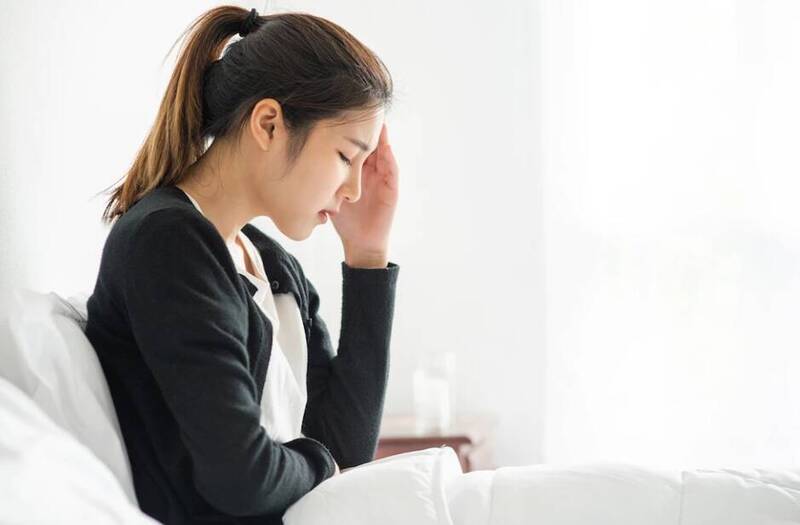Huang Yixuan said that dizziness is a feeling of floating, hypoglycemia and anxiety may be the cause; vertigo will have a feeling of shaking.
It is recommended to supplement vitamin B complex and Omega-3 fatty acids in daily life to slow down inflammation and help nerve repair; according to the situation.
(picture taken from freepik)
[Health Channel/Comprehensive Report] After being diagnosed and recovered from the epidemic, I still feel dizzy, have difficulty concentrating, and get tired easily. According to Chinese medicine practitioners, dizziness is a feeling of buoyancy, and hypoglycemia and anxiety may be the cause; Shaky feeling.
It is recommended to supplement vitamin B complex and Omega-3 fatty acids in daily life to slow down inflammation, help nerve repair, avoid overwork, get enough sleep and massage acupoints to relieve symptoms.
Huang Yixuan, a traditional Chinese medicine physician, posted on her Facebook fan page "Fuyuan Traditional Chinese Medicine Clinic" that many patients who have been diagnosed and recovered have symptoms of dizziness and dizziness.
Case reports abroad have mentioned that people with multiple severe symptoms at the time of diagnosis are more likely to have sequelae. Some patients experienced sudden vertigo after recovery, which is believed to be caused by vestibular neuritis caused by COIVD-19.
In addition, many patients have dizziness, drowsiness, and difficulty in concentrating memory.
Please read on...
How to distinguish between dizziness and vertigo?
Huang Yixuan pointed out that the difference between general dizziness and vertigo is that vertigo will have the feeling of spinning, shaking back and forth from side to side; dizziness is a feeling of "floating" or "top-heavy", hypoglycemia, anxiety, etc. are all possible causes.
Vertigo is caused by an imbalance in the vestibular balance system. There are many possible causes of vertigo. Most vertigo is benign, but emergencies such as stroke must be ruled out first.
Is vertigo a confirmed sequelae?
Foreign scholars have mentioned that when auditory nerve-related symptoms such as vertigo and hearing loss first occur within 3-4 weeks of the diagnosis period, and other possibilities of vertigo are excluded, such as trauma, original Meniere's Symptoms, etc., must also be differentiated from conditions such as ear apoplexy before they can be considered as sequelae of the diagnosis.
As for the cause of vertigo and dizziness caused by COVID-19 infection, Huang Yixuan said that the vertigo may be related to the high virus load destroying the inner ear barrier, invading the vestibular nerve of the inner ear, or caused by an immune response.
The latest research points out that many people have developed Postural Tachycardia Syndrome (POTS) after being diagnosed, which can cause dizziness and rapid heartbeat when standing up after squatting or lying down.
Huang Yixuan said that the vertigo caused by the new crown may be caused by the virus destroying the nerves. Therefore, according to the advice of the otolaryngologist, the course of drug treatment should be completed to facilitate the recovery of the nerves; ", including dizziness, vertigo, difficulty concentrating, memory loss, fatigue and other symptoms can be treated dialectically.
In addition, Huang Yixuan provides the following suggestions to help relieve symptoms of dizziness and vertigo.
Living Guide
● Supplementing vitamin B complex and omega-3 fatty acids can slow down inflammation and help nerve repair.
At present, it is believed that if vitamin C, magnesium, folic acid and other nutrients are deficient, chronic fatigue syndrome may worsen. When the nutritional intake is unbalanced and insufficient, it is more likely to have symptoms of new crown.
●It is not advisable to overwork, and avoid vigorous shaking of the head.
●It is advisable to slow down when sitting or lying down for a long time.
●Sleep enough, exercise should not be excessive.
acupressure
Fengchi: The earlobe is level, and the hairline at the back of the neck is sunken on both sides.
Baihui: the center of the top of the head, the line connecting the two ears, and the point between the two eyebrows.
Rate Valley: 1.5 inches straight above the tip of the ear (approximately the width of the index finger and middle finger).
Yifeng: behind the earlobe, at the midpoint between the mastoid process and the angle of the mandible.
self-healing
●Go to bed at 11 o'clock, do not stay up late: 11 o'clock in the evening - 1 o'clock in the morning is the time for human body repair.
●Do not eat heavy salty food: Sodium ions can damage hearing, cause inner ear lymphedema, and induce the onset of Meniere's disease.
●Decompression but not overwork: The tense state during work will activate the sympathetic nerves, concentrate blood to the central nervous system, sacrifice peripheral nerves, and lack blood perfusion. Since the inner ear is located at the very end of the circulation, it will gradually degenerate after a long time necrosis.
●Moderate exercise: Walking and squatting are good for the body.
☆Health news will never be missed, click like to follow the fan page.
☆For more important medical news, please go to Liberty Health.com.
keywords
Dizziness
acupressure
long crown
Wuhan Pneumonia (Novel Coronavirus Disease, COVID-19)
related news
